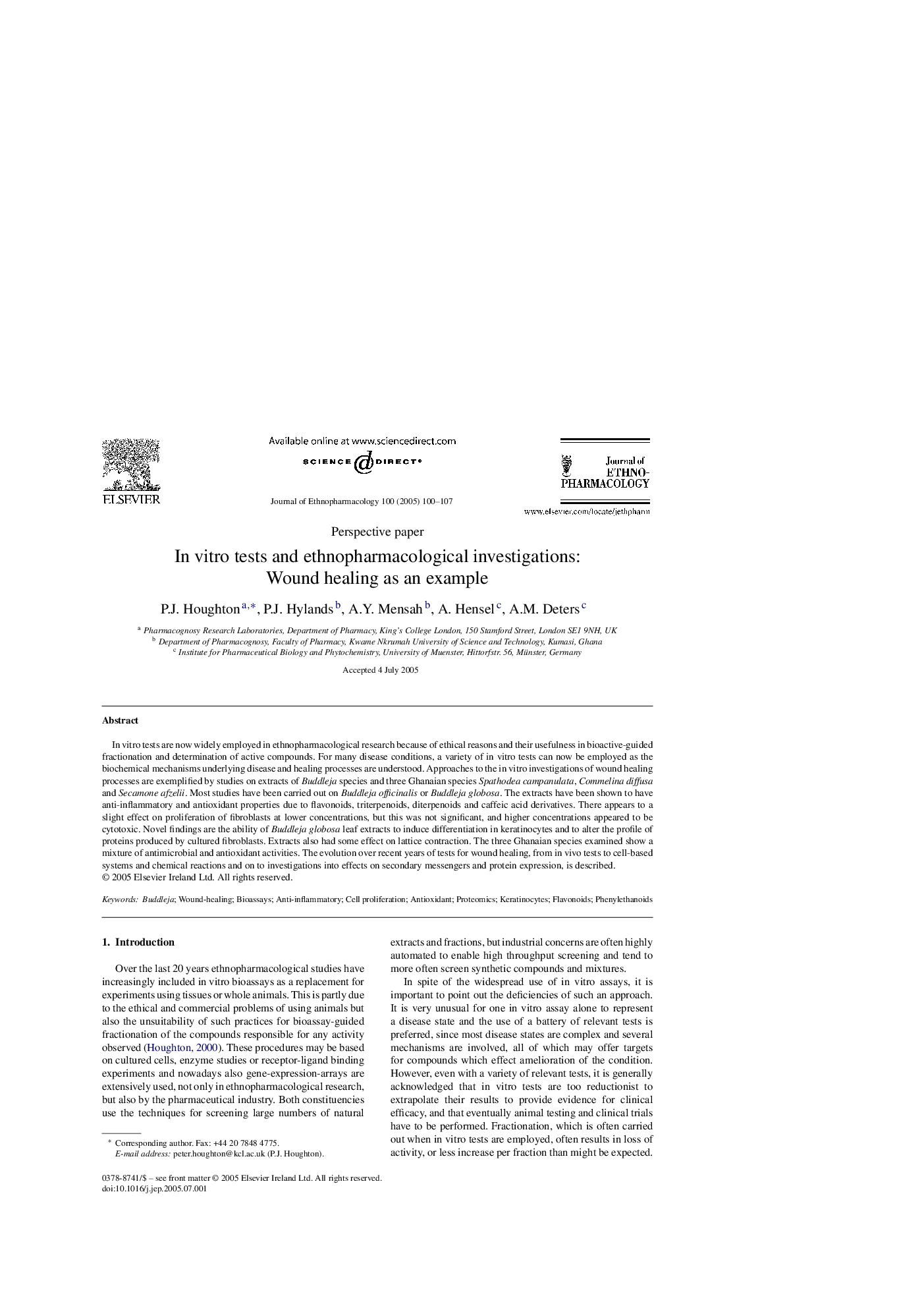| Article ID | Journal | Published Year | Pages | File Type |
|---|---|---|---|---|
| 9010537 | Journal of Ethnopharmacology | 2005 | 8 Pages |
Abstract
In vitro tests are now widely employed in ethnopharmacological research because of ethical reasons and their usefulness in bioactive-guided fractionation and determination of active compounds. For many disease conditions, a variety of in vitro tests can now be employed as the biochemical mechanisms underlying disease and healing processes are understood. Approaches to the in vitro investigations of wound healing processes are exemplified by studies on extracts of Buddleja species and three Ghanaian species Spathodea campanulata, Commelina diffusa and Secamone afzelii. Most studies have been carried out on Buddleja officinalis or Buddleja globosa. The extracts have been shown to have anti-inflammatory and antioxidant properties due to flavonoids, triterpenoids, diterpenoids and caffeic acid derivatives. There appears to a slight effect on proliferation of fibroblasts at lower concentrations, but this was not significant, and higher concentrations appeared to be cytotoxic. Novel findings are the ability of Buddleja globosa leaf extracts to induce differentiation in keratinocytes and to alter the profile of proteins produced by cultured fibroblasts. Extracts also had some effect on lattice contraction. The three Ghanaian species examined show a mixture of antimicrobial and antioxidant activities. The evolution over recent years of tests for wound healing, from in vivo tests to cell-based systems and chemical reactions and on to investigations into effects on secondary messengers and protein expression, is described.
Keywords
Related Topics
Health Sciences
Pharmacology, Toxicology and Pharmaceutical Science
Pharmacology
Authors
P.J. Houghton, P.J. Hylands, A.Y. Mensah, A. Hensel, A.M. Deters,
